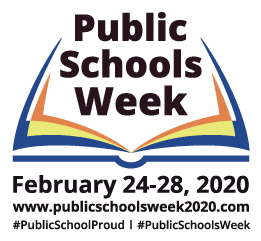04 Feb2020
By Deborah Koolbeck
Did you miss the AACTE member exclusive January 2020 Federal Update Webinar? Not to worry. It is posted online on the AACTE Advocacy Center federal page, ready for you to watch from the comfort of your home or other convenient location.
Please keep in mind that February’s update will be offered in person at the AACTE Annual Meeting in Atlanta (February 28-March 1). In fact, the update is offered twice to accommodate the busy schedules of attendees—Friday 10:30-11:30 a.m. and Saturday from 1:00-2:00 p.m.
Are you interested in augmenting your advocacy skills while at the Annual Meeting? Attend the AACTE Government Relations and Advocacy Committee’s Preconference: Your Levers of Civic Power: Moving the Gears of Democracy on Thursday, February 27 from 1:00 – 5:00 pm. Registration is required. Link to Preconfernces.
I am looking forward to seeing you in Atlanta!
31 Jan2020
By Jane E. West

This blog post is written by AACTE consultant Jane West and is intended to provide updated information. The views expressed in this post do not necessarily reflect the views of AACTE.
Federal Budget: The Deficit Explodes; Do Earmarks Return?
The federal government’s budget deficit is projected to reach $1.02 trillion in 2020—the first time since 2012 that the deficit breached the $1 trillion threshold—according to the Congressional Budget Office (CBO). The combination of 2017 tax cuts and new spending have been the biggest contributors to the increased deficit. FY 2020 is likely to see spending in the $4.6 trillion range while the government brings in only $3.6 trillion in tax revenue. CBO Director Phillip Swagel said, “Changes in fiscal policy must be made to address the budget situation, because our debt is growing on an unsustainable path.”
House Appropriations Chair, Rep. Nina Lowey (D-NY) is talking with Democratic colleagues to gauge their interest and seek input. The plan under deliberation would be a revised version of past earmarking with rules in place to keep the system in check. One aide to a freshman Democrat who flipped a GOP-held seat in 2018 noted, “This is not what we came to Congress to do. Voters made it clear years ago that they were tired of pork and special interest spending in Washington and sweetheart deals.” However, Majority Leader Steny Hoyer backs the revival of an earmark-type system. However, the Senate does not seem receptive to the idea. “The Republican Caucus is on the record against that, so that’s not going to go anywhere,” said Senate Appropriations Chair Richard Shelby (R-AL).
27 Jan2020
By Jane E. West
This blog post is written by AACTE consultant Jane West and is intended to provide updated information. The views expressed in this post do not necessarily reflect the views of AACTE.
As you know, all eyes are focused on the Senate impeachment trial this week. And with the House being in recess, there is no Congressional business underway directly related to education. This may be the case next week as well, since the trial will continue in the Senate. We will keep our eyes peeled. But meanwhile there is a lot going on over at the Department of Education.
Secretary DeVos Announces new Civil Rights Compliance Center
The Department of Education is launching a new unit in the Office for Civil Rights, which is intended to assist schools and universities in “proactively” complying with federal civil rights laws before complaints are filed. Dubbed the Outreach, Prevention, Education and Non-discrimination (OPEN) Center, the initiative will provide targeted support to schools, educators, families, and students in relation to federal non-discrimination laws.
23 Jan2020
By Deborah Koolbeck
 A new year brings with it the start of the Second Session of the 116th Congress. The 2019 holiday season brought its own gift: On December 20 of last year, the president signed into law the appropriations bills that funded programs important to the profession—and many programs saw increases.
A new year brings with it the start of the Second Session of the 116th Congress. The 2019 holiday season brought its own gift: On December 20 of last year, the president signed into law the appropriations bills that funded programs important to the profession—and many programs saw increases.
What can we expect as the Fiscal Year 2021 process begins to unfold? Will the increases remain, are cuts possible? What impact(s) can we expect, if any, from the Impeachment Trial in the U.S. Senate? How will the election affect both appropriations and legislation? In addition, the Census is starting; are you ready to help with the count on campus? This member exclusive webinar opportunity will cover these questions and also answer your questions in a Q & A session after the presentation.
Please note: there will be no webinars in February. Get your federal update live at the AACTE Annual Meeting in Atlanta, GA. Hurry! Registration closes on January 24.
Plan to attend the January 2020 Update
Tuesday, January 28 5:00 – 6:00 pm Register
Wednesday, January 29 12:30 – 1:30 pm Register
23 Jan2020
By Aaron Mudd
This article originally appeared in Bowling Green Daily News and is reprinted with permission.
A federal grant award topping $1 million to Western Kentucky University will help address a shortage of special education professionals seen regionally and across Kentucky.
“The shortages are felt nationally, but definitely in an acute manner in our rural communities,” said WKU College of Education and Behavioral Sciences Dean Corinne Murphy, whose college is heading up the effort called Project PREP, or Preparing Rural Educators and Professionals for Students with High-Intensity Needs.
The American Association of Colleges for Teacher Education said there’s a shortage and a lack of diversity of fully prepared and credentialed special education teachers in public schools across the country.
10 Jan2020
By Jane E. West

This blog post is written by AACTE consultant Jane West and is intended to provide updated information. The views expressed in this post do not necessarily reflect the views of AACTE.
Happy New Year! Welcome to the new decade and the second session of the 116th Congress. Can we even imagine what it holds for us? One thing we do know – our advocacy on behalf of equity and education will only amplify!
Funding Cycle for 2021: On Schedule?
With the ink barely dry on the FY 2020 funding packages, the budget cycle for FY 2021 is already on the horizon. The Trump Administration announced this week that it intends to release its Budget Proposal for FY 2021 on February 10, thus getting the cycle moving on time. The release of the proposal will be followed by hearings in House and Senate Appropriations committees and months of deliberation.
03 Jan2020
By Deborah Koolbeck
 In a Dear Colleague Letter, Karen Marrongelle of the National Science Foundation (NSF) invites proposals to the Improving Undergraduate STEM Education: Education and Human Resources Program from institutions of higher education that are new to the program. The letter specifically includes the opportunity in the Engaged Student Learning track of “… improving K-12 STEM education through undergraduate preservice STEM teacher preparation …”
In a Dear Colleague Letter, Karen Marrongelle of the National Science Foundation (NSF) invites proposals to the Improving Undergraduate STEM Education: Education and Human Resources Program from institutions of higher education that are new to the program. The letter specifically includes the opportunity in the Engaged Student Learning track of “… improving K-12 STEM education through undergraduate preservice STEM teacher preparation …”
Marrongelle heads the NSF Directorate for Education and Human Resources , which supports “the development of a diverse and well-prepared workforce of scientists, technicians, engineers, mathematicians, and educators and a well-informed citizenry that have access to the ideas and tools of science and engineering.”
20 Dec2019
By Jane E. West

This blog post is written by AACTE consultant Jane West and is intended to provide updated information. The views expressed in this post do not necessarily reflect the views of AACTE
Congress Delivers a Big Christmas Present – and On Time!
Republicans and Democrats in the House and the Senate came together to have bipartisan votes in both bodies to pass two packages of funding bills, which will keep all of the federal government running. President Trump has indicated that he will sign the bills today, thus preventing another government shutdown.
Some key points about the education portion of the bill:
- It adds $1.3 billion in spending for education over FY 2019.
- The Department of Education’s budget now totals $72.8 Billion.
- Virtually no program received a cut in funding and many received substantial increases.
- The largest increases went to Title I ($450 million) and IDEA Part B ($400 million).
- Related programs in HHS received large increases as well, for example Head Start has a $500 million increase.
- A new Social Emotional Learning initiative received $123 million.
- Many minority serving institutions in higher education received considerable increases including an $11 million increase for HBCU graduate institutions.
- For the first time in years funding for research on gun violence prevention is provided at $25 million (for CDC and NIH).
18 Dec2019
By Deborah Koolbeck
 As the Congress rapidly approaches the December 20 deadline for the Continuing Resolution (maintaining federal spending at the Fiscal Year 2019 (FY19) levels while the next year’s levels are negotiated), agreement was reached, and the two bills were released on December 16, 2019.
As the Congress rapidly approaches the December 20 deadline for the Continuing Resolution (maintaining federal spending at the Fiscal Year 2019 (FY19) levels while the next year’s levels are negotiated), agreement was reached, and the two bills were released on December 16, 2019.
The Bipartisan Budget Agreement of 2019 raised the non-defense and defense discretionary caps for FY20 and FY21, and was signed in early August as recess began. Given that the U.S. Senate had taken a stance not to move any bills without the aforementioned agreement in place, their work began in earnest in September. However, the bills were not completed by the end of the fiscal year (September 30), so Congress passed a Continuing Resolution (CR) through November 21, 2019. With consternation around key issues, including funding for the border wall, another CR was put in place through December 20, 2019. It was unclear if the divisions between both parties and both bodies could be resolved by the new cutoff date, but it appears that the Congress is on target to meet its deadline.
16 Dec2019
By Jane E. West

This blog post is written by AACTE consultant Jane West and is intended to provide updated information. The views expressed in this post do not necessarily reflect the views of AACTE.
Funding Agreement on the Horizon! No Shutdown Anticipated
December 20, a week from today, is the deadline for Congress to pass funding bills to keep the government in business and avoid a government shutdown. After weeks of handwringing, a bipartisan $1.3 trillion deal seems to have been brokered whereby all appropriations bills will be passed in the House and the Senate next week. While no details of the bills are yet available, it appears that one of the breakthroughs was an agreement to keep the amount of funding for the border wall (President Trump’s priority) at the current level of $1.375 billion.
Education advocates are eager to see if any of the significant increases in the House bill will be retained in the final package. All fingers are crossed in anticipation of next week. Learn more.
05 Dec2019
By Katrina Norfleet
 To show support and help advocate for public schools in the United States, AACTE is inviting members to add your voice to the thousands of others vowing to stand up for students and schools. The Learning First Alliance (LFA) has launched the Pledge for Public Schools in preparation for Public Schools Week 2020, a national celebration for educators and parents to spotlight the successes of their students and local schools in communities across the nation, and to bring attention to the critical issues facing schools, students, and educators.
To show support and help advocate for public schools in the United States, AACTE is inviting members to add your voice to the thousands of others vowing to stand up for students and schools. The Learning First Alliance (LFA) has launched the Pledge for Public Schools in preparation for Public Schools Week 2020, a national celebration for educators and parents to spotlight the successes of their students and local schools in communities across the nation, and to bring attention to the critical issues facing schools, students, and educators.
LFA reports that U.S. public schools educate 50.8 million students (nine of 10), regardless of ability, race, wealth, language, religion or country of origin. During Public Schools Week 2020, to be held February 24-28, 2020, advocates will take the thousands of pledges to Capitol Hill and state capitals across the country to illustrate to lawmakers how many people are supporting America’s public schools.
Once you take the pledge, LFA asks that you share on social media using the hashtag #PublicSchoolProud. More updates and events leading up to Public Schools Week will be announced at learningfirst.org/publicschoolsweek.
To learn more about LFA, visit learningfirst.org.
26 Nov2019
By Jane E. West
 This blog post is written by AACTE consultant Jane West and is intended to provide updated information. The views expressed in this post do not necessarily reflect the views of AACTE.
This blog post is written by AACTE consultant Jane West and is intended to provide updated information. The views expressed in this post do not necessarily reflect the views of AACTE.
Last Thursday, Congress postponed the showdown over government funding until Dec. 20 and hit the road for Thanksgiving. They are planning some fancy footwork upon return as the impeachment process steams forward and a government shutdown remains a possibility.
Showdown over Government Funding Postponed until Dec. 20
Once again, the Congress has punted on funding the government. December 20 is the new deadline for determining overall spending levels for each of the 12 funding bills and completing them. Funding for education hangs in the balance with the House passed bill including a $5 billion increase, but no such increase in the Senate bill. The budget agreement adopted earlier in the year provides for an increase of about $100 billion for defense and domestic spending for this fiscal year. If Congress cannot agree on new funding levels, this new infusion of funds will be left on the drawing table.
19 Nov2019
By Jane E. West

This blog post is written by AACTE consultant Jane West and is intended to provide update information. The views expressed in this post do not necessarily reflect the views of AACTE.
Congress Still Working to Avoid that Government Shutdown
The current continuing resolution—a bill that keeps the government temporarily funded – expires next week, on November 21. Congressional leaders have been scrambling this week to find a way to keep government funding extended beyond that time, and thus avoid a government shutdown. They appear to be closing in on another temporary funding extension—through December 20—predicated on progress on the big obstacle, which is agreeing on top line totals for each of the 12 funding bills. Since the House and Senate did not agree on those totals before they wrote their bills, there are significant discrepancies which can only be resolved by a House/Senate agreement on one figure for each bill. This is critical for the bill that funds education, as the House bill is about $5 billion more generous for education than the Senate draft bill.
01 Nov2019
By Jane E. West

This blog post is written by AACTE consultant Jane West and is intended to provide update information. The views expressed in this post do not necessarily reflect the views of AACTE.
It’s been quite a week in DC. The most impressive news is having our home team—the Nationals—win the World Series, despite their substantial underdog status. Other than that, the House voted to proceed officially with the impeachment process on a totally partisan basis—and that promises to suck the oxygen out of any sort of Congressional agenda for months.
Are we Headed to a Government Shutdown … Again?
While the Senate made progress on funding bills this week, big hurdles remain. The Senate passed a package of four appropriations bill with a bipartisan vote of 84-9, the first funding bills to pass the Senate. However, Senate Democrats blocked movement on the package of two large spending bills: Defense and Labor/HHS/Education. They are not happy that President Trump is insisting on funding for his border wall and that the Labor/HHS/Education bill’s spending level is so low.
29 Oct2019
By Jane E. West
 This blog post is written by AACTE consultant Jane West and is intended to provide update information. The views expressed in this post do not necessarily reflect the views of AACTE.
This blog post is written by AACTE consultant Jane West and is intended to provide update information. The views expressed in this post do not necessarily reflect the views of AACTE.
Funding Bills Move in the Senate, but Not for Education
November 21, less than a month away, is the date the government runs out of money. The ball is in the Senate court, as they have yet to pass any appropriations bills on the floor. Majority Leader McConnell (R-KY) has teed up passage of the first package of funding bills, which Democrats have said they will support. But that package does not include education spending, which is in the Labor/HHS/Education appropriations bill.








 A new year brings with it the start of the Second Session of the 116th Congress. The 2019 holiday season brought its own gift: On December 20 of last year, the president signed into law the appropriations bills that funded programs important to the profession—and many programs saw increases.
A new year brings with it the start of the Second Session of the 116th Congress. The 2019 holiday season brought its own gift: On December 20 of last year, the president signed into law the appropriations bills that funded programs important to the profession—and many programs saw increases.
 In a
In a 
 As the Congress rapidly approaches the December 20 deadline for the Continuing Resolution (maintaining federal spending at the Fiscal Year 2019 (FY19) levels while the next year’s levels are negotiated), agreement was reached, and the two bills were released on December 16, 2019.
As the Congress rapidly approaches the December 20 deadline for the Continuing Resolution (maintaining federal spending at the Fiscal Year 2019 (FY19) levels while the next year’s levels are negotiated), agreement was reached, and the two bills were released on December 16, 2019. 
 To show support and help advocate for public schools in the United States, AACTE is inviting members to add your voice to the thousands of others vowing to stand up for students and schools. The Learning First Alliance (LFA) has launched the
To show support and help advocate for public schools in the United States, AACTE is inviting members to add your voice to the thousands of others vowing to stand up for students and schools. The Learning First Alliance (LFA) has launched the  This blog post is written by AACTE consultant Jane West and is intended to provide updated information. The views expressed in this post do not necessarily reflect the views of AACTE.
This blog post is written by AACTE consultant Jane West and is intended to provide updated information. The views expressed in this post do not necessarily reflect the views of AACTE.

 This blog post is written by AACTE consultant Jane West and is intended to provide update information. The views expressed in this post do not necessarily reflect the views of AACTE.
This blog post is written by AACTE consultant Jane West and is intended to provide update information. The views expressed in this post do not necessarily reflect the views of AACTE.